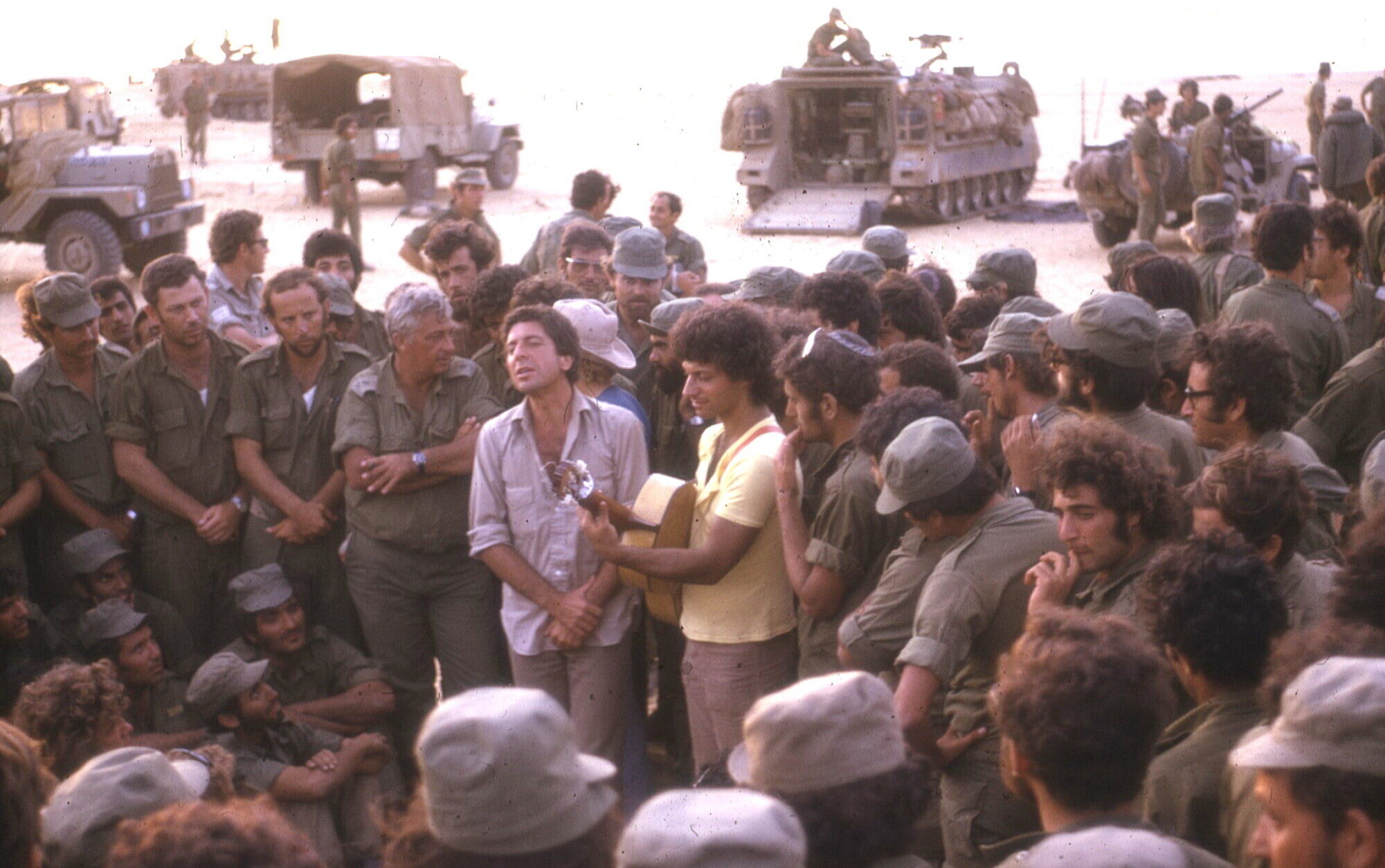
Using Cohen’s own notes, and recollections of Israeli soldiers who heard him, Matti Friedman teases out the astounding story of the Jewish singer-priest on the Yom Kippur frontline
By David Horovitz
Matti Friedman had a series of near and not-so-near misses with Leonard Cohen.
Friedman was born in Canada in 1977, four years after the 1973 Yom Kippur War during which the Canadian poet-songwriter-singer performed a truly remarkable series of ad hoc concerts for Israeli troops on the front lines of the catastrophic conflict.
He didn’t make it to Cohen’s final, very different concert in Israel in 2009, when Cohen — now in his mid-70s and enjoying the greatest adulation of his career — played for tens of thousands of Israelis, defied the vast concrete arena to elevate a stadium audience as never before, and concluded by offering his people a Priestly Blessing. Friedman was at home in Jerusalem, looking after his 18-month-old twins.
And when, in November 2016, Friedman started working on the pitch for what became his new book on Cohen, and emailed his editor at the Canadian publisher he and Cohen shared to see if an interview could be arranged, it turned out that Cohen had passed away, at 82, the previous day.
There’s no knowing what Cohen in person would have added to Friedman’s fascinating and important book, “Who By Fire: Leonard Cohen in the Sinai,” published in English on March 29 (having appeared in Hebrew, fittingly, last Yom Kippur).
He might have explained why he discarded the verse Friedman rediscovered, from the song “Lover Lover Lover” released soon after the war, in which Cohen wrote of going “down to the desert to help my brothers fight.” He might have clarified what possessed him not merely to come here and perform in a war but to put his life at genuine risk; Cohen crossed the Suez Canal just after the first Israeli troops had done so in the turning point of the conflict. He might at least have helped Friedman track the itinerary of exactly where and when he played; no such definitive record exists, unsurprisingly given both the chaos that reigned here and the fact that Cohen was not a megastar at the time.
But as Friedman came to realize as he researched the book — frustrated by the absence of basic core information, but ultimately empowered when he was granted unprecedented access to the musician’s notebooks from the period — Cohen might not actually have helped him much at all. In the decades after his extraordinary war tour, Cohen didn’t talk about it. Wouldn’t talk about it.
“Leonard Cohen the man was very much here, with the Israelis,” Friedman, a friend of mine and a former colleague here at The Times of Israel, told me in an interview. “But Leonard Cohen the artist understood that he had to be bigger than one side and bigger than the Yom Kippur War. He didn’t want his art to be considered journalism.”
Hence, said Friedman, the amending and ultimate deletion of that Zionist verse in “Lover Lover Lover.” And hence, perhaps too, the refusal to discuss his 1973 musical desert heroics.
Fortunately for those many people for whom Cohen’s uniquely wise, anguished and spiritual oeuvre continues to resonate deeply, Friedman’s book fills the vacuum.
It has much to say, moreover, for those many who want to better understand the shattering moment for Israel that was the Yom Kippur War — October 6-25, 1973 — after which the country would never be the same confident, indomitable, secular pioneering miracle.
(Read the rest here.)
